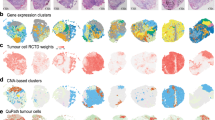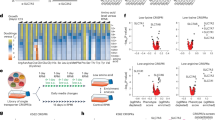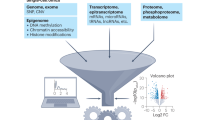Abstract
L-Glutamine is a requirement for many cells in tissue culture, an intermediate in many metabolic pathways, and an alternative substrate to glucose for energy metabolism. These properties suggest that glutamine concentration might be a determinant of cell viability in tumours, especially in regions that are deficient in other metabolites. We have therefore studied the effects of glutamine depletion on single cells in culture, on spheroids and on experimental tumours. Absence of glutamine suppressed the growth rate of two cell lines, but cells cultured for up to 6 h in the absence of glutamine had no decrease in plating efficiency. There was little effect on growth of MGH-U1 (human bladder cancer) spheroids of varying the glutamine concentration in the range of 0.1 to 2 mM and spheroids exposed to these concentrations did not develop central necrosis. Lower concentration of glutamine suppressed the rate of spheroid growth, and spheroids did not grow in the absence of glutamine. Pseudomonas 7A glutaminase reduced the survival of cells in glutamine-free culture and prevented growth of spheroids. Glutaminase was injected into mice bearing experimental tumours to reduce blood levels of glutamine; some animals also received 15 Gy radiation to their tumours to assess the effects of glutamine levels on surviving nutrient-deprived (i.e. hypoxic) cells. Glutaminase had no effect on cell survival in the Lewis lung tumour or in MGH-U1 xenografts, with or without radiation; glutaminase caused dose-dependent growth delay of the KHT tumour, which was additive to that caused by radiation. The present results suggest that (i) short-term changes of glutamine concentration have small effects on cell viability; and (ii) depletion of glutamine levels in blood through the in vivo use of glutaminase is unlikely to produce major therapeutic effects against nutrient-deprived cells in solid tumours.
This is a preview of subscription content, access via your institution
Access options
Subscribe to this journal
Receive 24 print issues and online access
$259.00 per year
only $10.79 per issue
Buy this article
- Purchase on Springer Link
- Instant access to full article PDF
Prices may be subject to local taxes which are calculated during checkout
Similar content being viewed by others
Rights and permissions
About this article
Cite this article
Tannock, I., Steele, D. & Roberts, J. Influence of reduced concentration of L-glutamine on growth and viability of cells in monolayer, in spheroids, and in experimental tumours. Br J Cancer 54, 733–741 (1986). https://doi.org/10.1038/bjc.1986.234
Issue Date:
DOI: https://doi.org/10.1038/bjc.1986.234
This article is cited by
-
l-glutamine: a major substrate for tumor cells in vivo?
Journal of Cancer Research and Clinical Oncology (1987)



